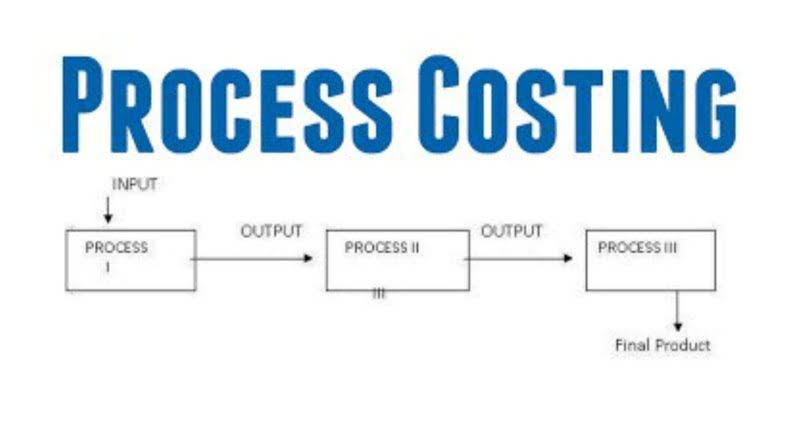
Nonprofit accounting is a vital part of any organization, as it allows the nonprofit to track its finances and manage its resources. To ensure your nonprofit runs efficiently, small organizations should focus on streamlining solutions like online accounting. It also outlines the reporting, filing, and notification requirements related to a nonprofit’s activities. In addition, this code discusses the circumstances in which a nonprofit organization will be liable for taxes, penalties, and other charges. The right nonprofit accounting experts ensure your knowledge of and compliance with nonprofit tax and accounting regulations is up to par, preventing costly mistakes from ever happening.
Essential elements of nonprofit accounting
Essentially, the Form 990 is the IRS’s method of evaluation to make sure your nonprofit is financially honest and legitimate. Another aspect of nonprofit accounting that helps organizations stay accountable to their finances is the nondistribution constraint. Unlike for-profits, nonprofits are required not to distribute their net earnings to the leaders at the organization. For an in-depth look at these reports, check out our article on the core nonprofit financial statements.
Create an Annual Budget
YPTC Ranks #65 on Accounting Today’s List of Top 100 Firms – PR Newswire
YPTC Ranks #65 on Accounting Today’s List of Top 100 Firms.
Posted: Fri, 08 Mar 2024 08:00:00 GMT [source]
For the most part, however, cash flow statements for non and for-profits are very similar. If you’ve dealt with for-profit cash flow statements before, this should look very familiar. You probably didn’t start a nonprofit organization to stare at spreadsheets and Google things like «how to record an nonprofit accounting in-kind donation.» It is important to take care of overhead before seeking out donors for a nonprofit because it demonstrates financial responsibility and a commitment to efficiency. Budgeting for a nonprofit business should require the same care and attention to detail as any other organization.

Nonprofit Accounting Essential Elements
Looking up a nonprofit’s Form 990—using services like Guidestar.org—can tell you a lot about its financial state. The results of accounting allow the user to generate reports that provide relevant and reliable information to aid in decision-making, https://www.bookstime.com/ financial management, and necessary compliance. In the Nonprofit industry these are called the Statement of Financial Position and Statement of Financial Activity. See also Statements of Financial Position and Statements of Financial Activities.
Payroll Tax
- Expenses are a necessary part of running a nonprofit, but you need to ensure they remain low or donors will be less likely to support your organization.
- In the nonprofit sector, revenue management involves tracking and reporting on various sources of income.
- In most cases, it’s better to let your accounting software or a bookkeeper take care of this step for you.
- For the most part, nonprofits can apply to the IRS to become exempt from federal taxes under Section 501.
This is especially important since board members have a fiduciary duty—ensuring that the organization is transparent about finances. Proper accounting and financial management are necessary for nonprofit organizations to stay viable and remain accountable to the public, donors, funders, and other stakeholders. The delegation also helps alleviate leadership of day-to-day accounting tasks and allows them to focus on other organizational objectives.

Accounting for Nonprofits
- By creating a realistic annual budget and regularly assessing financial performance, nonprofits can effectively manage their resources and make strategic adjustments as needed.
- However, it also offers a few nonstandard features such as volunteer tracking and board management.
- However, if your functional expenses become too large, donors might hesitate to give.
- It is important to take care of overhead before seeking out donors for a nonprofit because it demonstrates financial responsibility and a commitment to efficiency.
- Accounting for nonprofits also differs from that in the for-profit sector in a number of other ways.
Understanding these guidelines will help your nonprofit succeed in its mission, all while ensuring accountability and tax-exempt status through transparent financial reporting. In this guide, we’ll explain everything you need to know about accounting for nonprofits. Your nonprofit’s statement of financial position is a great indicator of your organization’s overall financial health. If you don’t have enough funding to reinvest into the organization (the net assets available to your team), it will be challenging to achieve growth.
Accrual Accounting vs. Cash Accounting for Nonprofits
They should also let you track how your income and spending for the year compare to your budget goals. Don’t use your personal bank account to receive, hold or disburse money for your nonprofit. Make sure all of your nonprofit’s transactions go through a dedicated bank account. Ask your bank whether they offer business chequing accounts tailored to nonprofits. This is important because nonprofits often have very specific rules around different funding sources. Internal controls not only limit cases of fraud, but often aid in catching errors.
- If your organization has grown to the point where you need to hire someone to manage the books, even if they are part time, it may be worth outsourcing instead.
- Additionally, sloppy or inaccurate accounting can lead to problems with the IRS, which include possibly losing nonprofit status, hefty fines, and even criminal charges.
- However, you should consider a few unique factors when budgeting for a nonprofit.
- And then, there are a series of reports and financial statements you’ll use to communicate the financial reality of your organization to potential donors, the IRS, watchdog agencies, and other stakeholders.
- When evaluating an organization’s financial performance, it is crucial to analyze both the budget and actual financial data.

